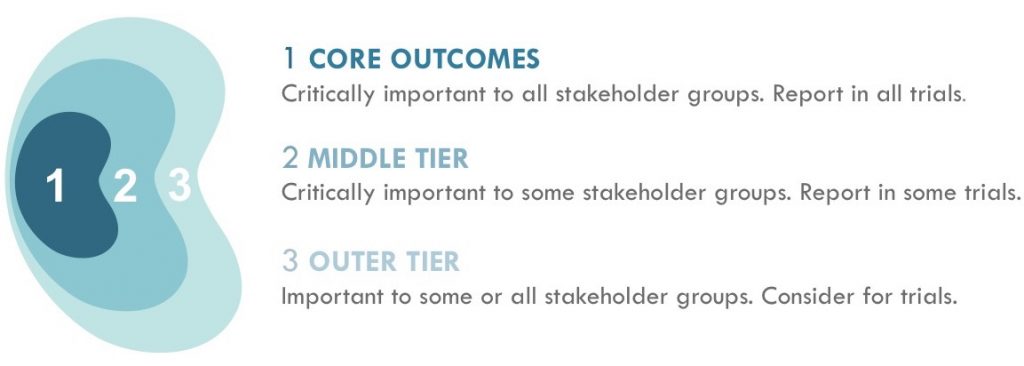About
 The Standardised Outcomes in Nephrology (SONG) initiative aims to establish a set of core outcomes and outcome measures across the spectrum of kidney disease for trials and other forms of research. The outcomes will be developed based on the shared priorities of patients, caregivers, clinicians, researchers, policy makers, and relevant stakeholders. This will help to ensure that research is reporting outcomes that are meaningful and relevant to patients with kidney disease, their family, and their clinicians; to support decisions about treatment.
The Standardised Outcomes in Nephrology (SONG) initiative aims to establish a set of core outcomes and outcome measures across the spectrum of kidney disease for trials and other forms of research. The outcomes will be developed based on the shared priorities of patients, caregivers, clinicians, researchers, policy makers, and relevant stakeholders. This will help to ensure that research is reporting outcomes that are meaningful and relevant to patients with kidney disease, their family, and their clinicians; to support decisions about treatment.
We are currently developing core outcomes for haemodialysis (SONG-HD), transplantation (SONG-Tx), peritoneal dialysis (SONG-PD) children and adolescents (SONG-Kids), polycystic kidney disease (SONG-PKD), and glomerular disease (SONG-GD).
What is an outcome?

In clinical trials, treatments are developed and tested by researchers to make sure they work and are safe. Researchers look at the effects those treatments have on patients and do this by measuring an “outcome”. An outcome is something that can be measured, and can arise or change because of a health condition or treatment. A core outcome set is an agreed standardised set of outcomes that should be measured and reported, as a minimum, in all clinical trials in specific areas of health or health care. Researchers can add other outcomes to the core outcome set.
Identifying outcome measures
The core outcome domains will inform subsequent work in the development and regular review of outcome measures for evaluating outcomes that are meaningful and relevant to users of the research – who are primarily patients and their clinicians.
Why is it important to choose the “right” outcome measure for vascular access complications?
An outcome measure is used to assess the effectiveness or safety of the intervention (e.g. treatment) being used in a trial. Choosing the “right” outcome measure can:
- help patients/clinicians measure vascular access complications in a meaningful, appropriate, and easy way as accurately as possible;
- guide the development and evaluation of interventions and patient care; and
- inform conversations and decision making about treatment plans.
The SONG process
The SONG process is based on validated methodology developed by the Outcome Measures in Rheumatology (OMERACT) initiative. This process is underpinned by the values of: partnership, transparency, equity, trust, respect, evidence, and diversity.
